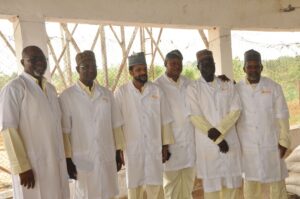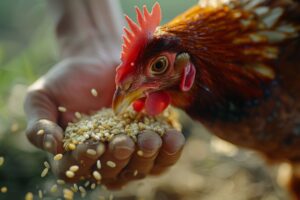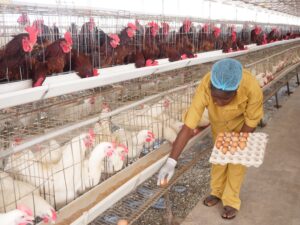Fuel Subsidy removal has exerted a substantial influence on Nigerian’s agricultural sector. Agriculture encompasses soil cultivation, crop production and livestock raising, playing a vital role in Nigeria’s economy, contributing an average of 23% to the GDP. In Nigeria, agriculture is divided into crop production, livestock, fishing, and forestry, with crop production being the largest segment followed by livestock, fishing and forestry respectively. Crop farming, include maize, cassava, guinea corn, and yam which engages about 70% of households.
Fish farming involves breeding fish for food in the ponds, with carp, catfish, salmon and tilapia being key species. Forestry involves managing forests for catfish, salmon, and tilapia being key species. Forestry involves managing forests for human and environmental benefits, practiced in plantations and natural strands.
Livestock, including poultry birds, cattle, small ruminants, pigs, rabbits and in some regions, donkeys, camels, and horses, are crucial for food production. However, poultry farmers face some challenges due to high production costs resulting from the removal of fuel subsidies, impacting the availability of chicken and increasing costs of day-old chicks, feed, vaccination and chicken cages. Poultry farmers find it difficult to rear large number of chicken due to increased cost of feed. The major raw material for chicken feed production is the maize.
Economic Impact of Fuel Subsidy Removal
- Inflation: The removal of fuel subsidy has led to an immediate increase in fuel price, which has triggered the chain reaction; causing higher transportation costs and ultimately contributing to inflation. Prices of goods and services have risen, affecting both the rich and the poor but the poor are suffering more due to significant reduction in their purchasing power.
- Transportation cost and Market Instability:
The removal of fuel subsidies has sent ripples through the agricultural sector. The major effect is the increased transportation costs due to the high fuel prices, directly impacting agricultural production. Fuel plays a critical role in agricultural logistics, powering the transportation of inputs like fertilizers and the delivery of produce to markets. With the spike in fuel prices, transportation costs have soared, squeezing farmers’ profit margins and potentially driving up food prices for consumers.
Farmers and food production companies alike face challenges in managing these increased transportation costs, transferring the burden to the finished product. This, in turn, affects the poor masses significantly, as the cost of living rises higher than the income generated. Farmers, already burdened with the high cost of fuel, find it particularly challenging to manage crucial equipment such as tractors and pumps, further affecting crop production, especially maize, which is essential for poultry farming. The rise in maize prices further compounds the issue by driving up the costs of chicken feed, making it harder to efficiently manage large flocks. As a result, demand for poultry products decreases, leaving many unable to afford them amidst rising expenses.
- Decrease in economic growth: This has led to a decreased rate of economic growth. most business organizations are folding up while some are struggling to stay in business, there is increase in price of essential goods and services. As a result, there is fewer disposable income in the hands of individuals and small businesses due to rising prices, stagnant wages and fixed national minimum wage. This has led to reduction in consumption expenditure and currently acting as a drag on aggregate demand. The reduction in consumption would translate to weak consumer demand for goods and services produced by firms.
In conclusion, agriculture stands as a cornerstone of Nigeria’s economy, contributing significantly to the GDP and providing livelihoods for millions. However, the removal of fuel subsidies has sent shockwaves through the agricultural sector, leading to inflation, increased transportation costs, and market instability. These challenges disproportionately affect both farmers and consumers, particularly impacting poultry production due to rising feed costs. Consequently, the ripple effects extend beyond the agricultural sector, dampening economic growth and reducing consumer spending, posing a significant threat to Nigeria’s overall economic stability. Urgent interventions are needed to mitigate these effects and safeguard the resilience of the agricultural industry and the welfare of its stakeholders.
Reference:
https://www.merriam-webster.com/dictionary/agriculture
https://en.wikipedia.org/wiki/Economy_of_Nigeria
https://www.researchgate.net/publication/301345493_Agriculture_Definition_and_Overview
https://en.wikipedia.org/wiki/Poultry
https://www.fao.org/nigeria/fao-in-nigeria/nigeria-at-a-glance/en/









